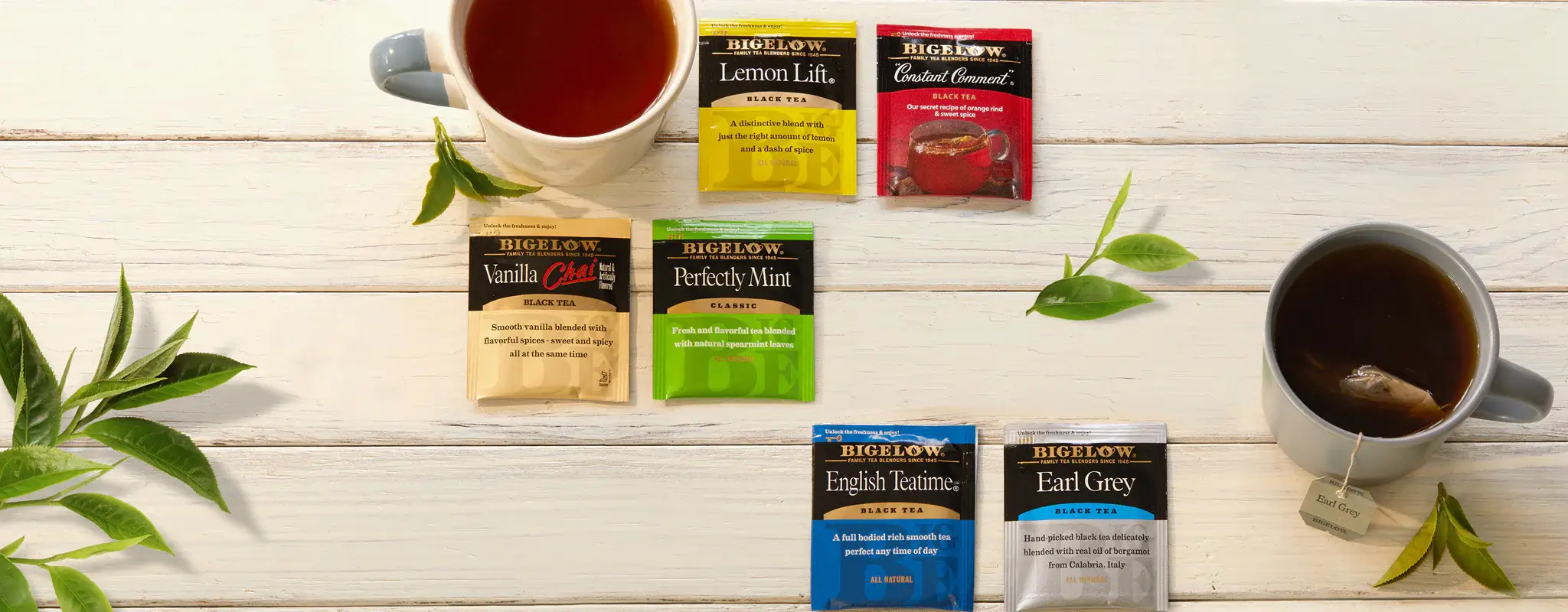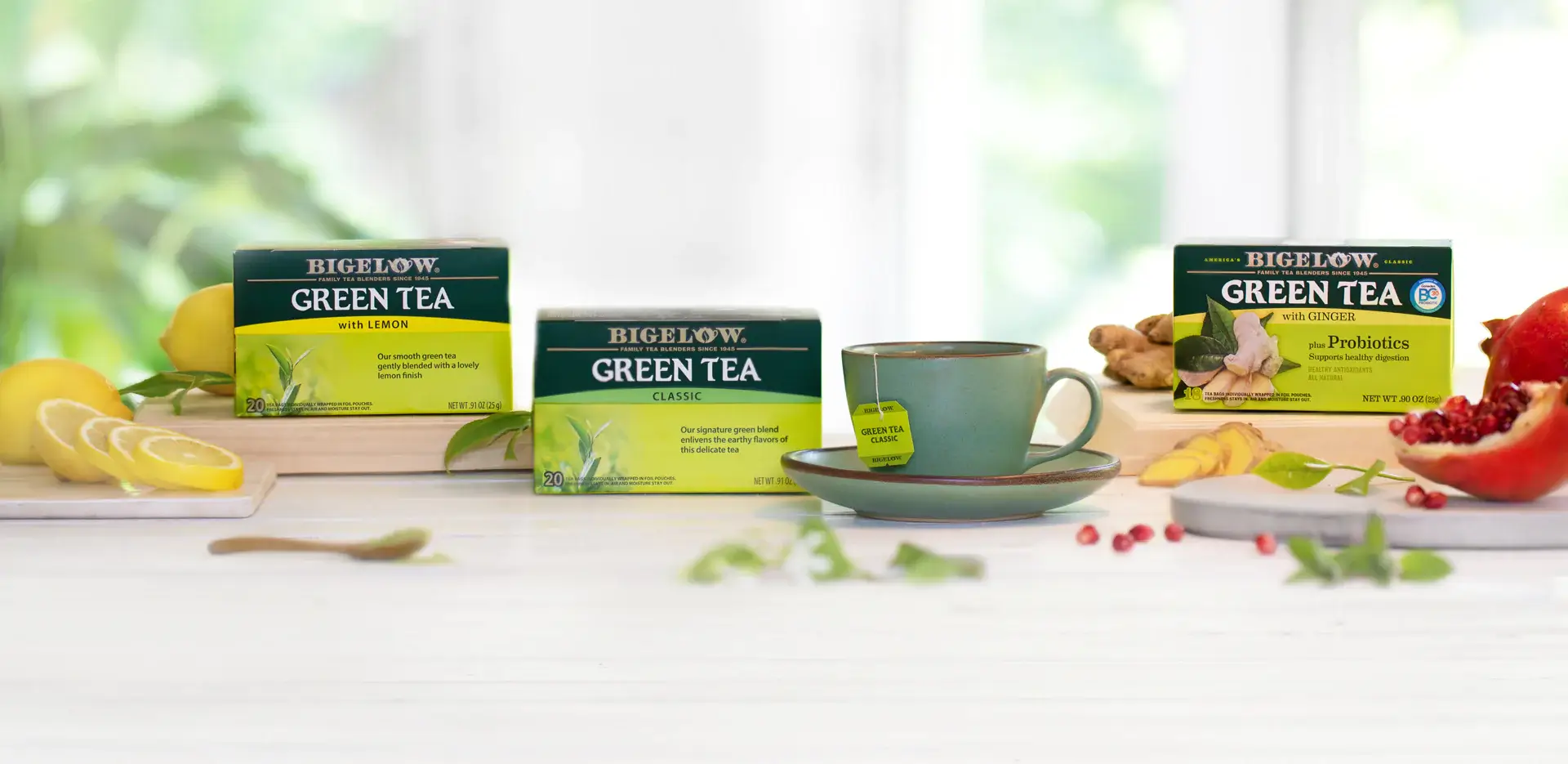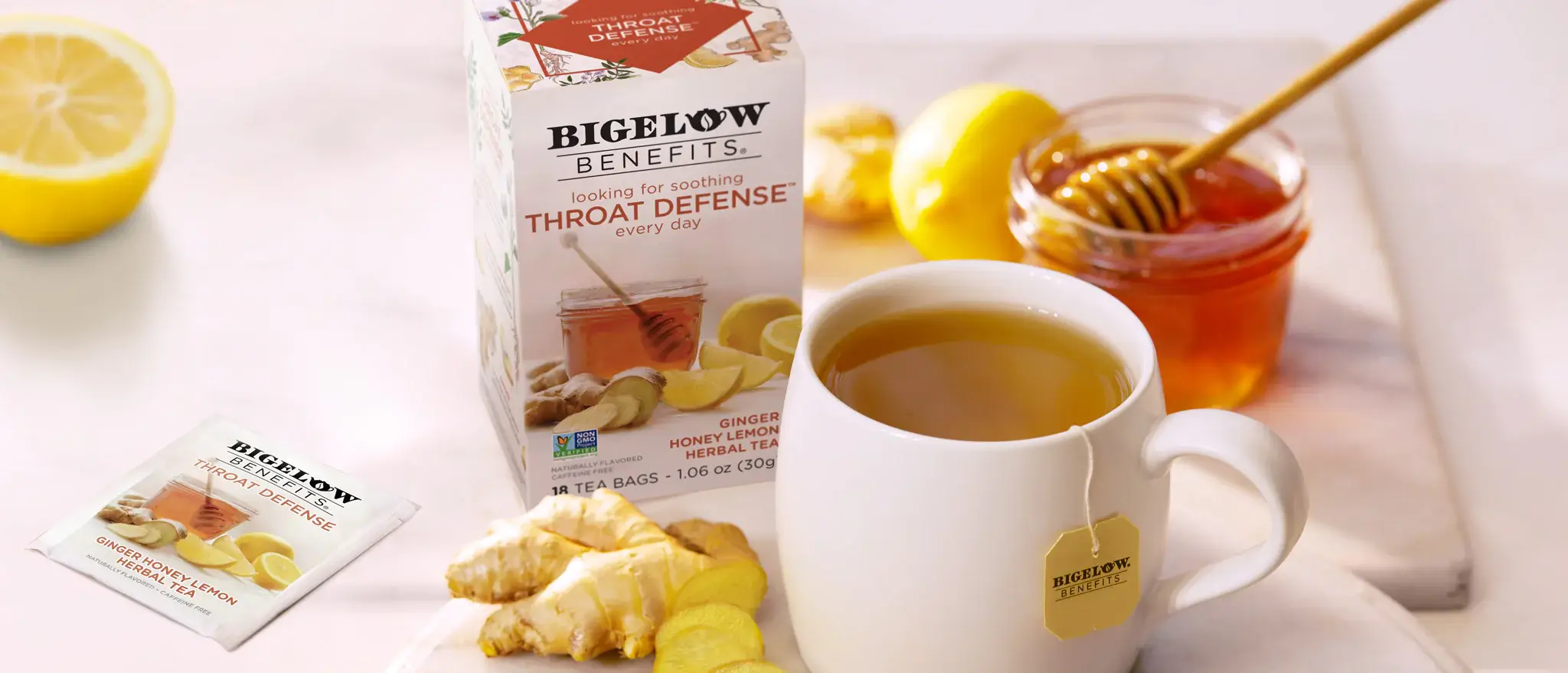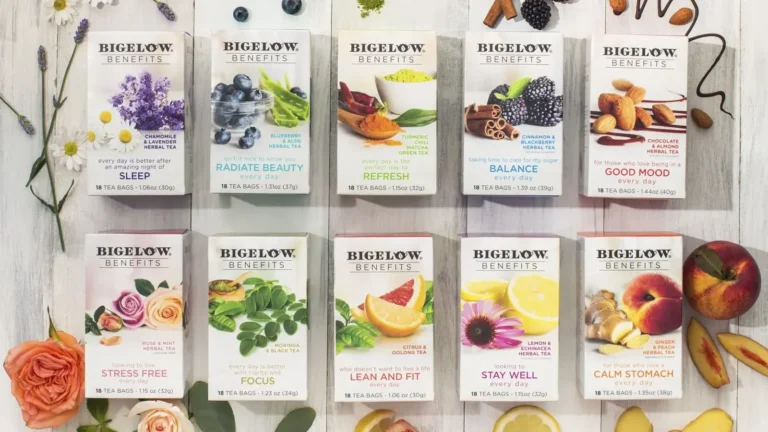As consumers, we’re becoming increasingly aware of the potential risks associated with plastic consumption, particularly in the form of microplastics. When it comes to our daily cup of tea, the question arises: Does Bigelow tea have plastic?
This article aims to provide a comprehensive understanding of the materials used in Bigelow Tea bags and address any concerns surrounding plastic content.
Does Bigelow Tea Have Plastic?
Bigelow tea bags are made from a bioplastic called polylactide (PLA), which is derived from renewable resources like cornstarch or sugarcane.
PLA is biodegradable and compostable under specific conditions, so technically Bigelow tea bags do contain plastic, but it’s a more eco-friendly alternative to traditional plastics.
Bigelow Tea’s Commitment to Quality
Bigelow Tea is a well-established brand that has been crafting quality teas for over 75 years. The company prides itself on using high-quality ingredients and adhering to stringent safety standards.
Their commitment to transparency and customer satisfaction is evident in their efforts to address concerns about potential plastic contamination in their tea bags.

What Are Bigelow Tea Bags Made Of?
At the heart of the matter is the material used to construct Bigelow Tea bags. The company has been vocal about its use of a plant-based material called polylactide, commonly known as PLA.
PLA is a bioplastic derived from renewable resources like cornstarch or sugarcane. Unlike traditional plastics, which are derived from non-renewable fossil fuels, PLA is biodegradable and compostable under specific conditions.
Are Tea Bags Supposed to Float?
The Benefits of Polylactide (PLA)
Bigelow Tea’s decision to use PLA as the primary material for their tea bags offers several advantages:
Environmental Sustainability
PLA is a more eco-friendly alternative to traditional plastics. Since it is derived from plant-based sources, its production has a lower carbon footprint compared to petroleum-based plastics.
Additionally, PLA is designed to biodegrade in industrial composting facilities, reducing waste and promoting a circular economy.
Food Safety
One of the primary concerns with traditional plastics is the potential for harmful chemicals to leach into food and beverages.
PLA, on the other hand, is considered safe for food contact and has been approved by regulatory bodies such as the FDA and the European Food Safety Authority (EFSA).
Oxygen Barrier
Tea bags need to provide an effective oxygen barrier to preserve the freshness and flavor of the tea leaves. PLA effectively blocks oxygen, ensuring that your tea remains fresh and flavorful until you’re ready to brew it.

Addressing Concerns: Microplastics and Tea Bags
Despite Bigelow Tea’s efforts to use an environmentally friendly and safe material, concerns have been raised about the potential presence of microplastics in their tea bags.
Microplastics are tiny particles of plastic, typically smaller than 5 millimeters, that can originate from various sources, including the breakdown of larger plastic items.
A study conducted by researchers at McGill University in Canada found traces of microplastics in several tea bag brands, including Bigelow Tea.
However, it’s essential to note that the levels detected were relatively low, and the long-term health implications of microplastic exposure through tea consumption are still being investigated.
Are Tazo Tea Bags Compostable?
Bigelow Tea’s Response to Microplastic Concerns
In response to these concerns, Bigelow Tea has been proactive in addressing the issue of microplastics. The company has taken several steps to minimize the risk of microplastic contamination:
- Material Selection: By using PLA, a biodegradable and compostable material, Bigelow Tea aims to reduce the overall plastic footprint associated with its tea bags.
- Manufacturing Processes: Bigelow Tea employs rigorous quality control measures during the manufacturing process to minimize the potential for microplastic contamination.
- Ongoing Research: The company is actively monitoring scientific research on microplastics and their potential impacts. Bigelow Tea is committed to adapting and improving its practices based on the latest findings.
- Transparency: Bigelow Tea has been transparent about its use of PLA and its efforts to address microplastic concerns. The company regularly communicates with customers and stakeholders, providing updates and addressing any questions or concerns.

Enjoying Your Cup of Bigelow Tea with Confidence
While the presence of microplastics in the environment is a valid concern, it’s important to put the findings in perspective. The levels of microplastics detected in Bigelow Tea bags, and other tea brands, are relatively low compared to other potential sources of exposure, such as bottled water, seafood, and even the air we breathe.
Furthermore, Bigelow Tea’s commitment to using sustainable and safe materials like PLA demonstrates their dedication to minimizing their environmental impact and providing a high-quality product to their customers.
Is Tea Less Acidic Than Coffee?
Tips for Reducing Microplastic Exposure
While enjoying your favorite Bigelow Tea, there are a few simple steps you can take to further reduce your potential exposure to microplastics:
- Opt for Loose Leaf Tea: Using loose leaf tea eliminates the need for a tea bag altogether, reducing the risk of microplastic exposure from this source.
- Use a Tea Infuser or Strainer: If you prefer the convenience of tea bags, consider using a reusable tea infuser or strainer instead. These can be easily cleaned and reused, reducing waste and potential microplastic contamination.
- Support Sustainable Brands: By choosing brands like Bigelow Tea that prioritize sustainability and transparency, you can contribute to driving positive change in the industry.
Conclusion
In conclusion, while the presence of microplastics in the environment is a valid concern, Bigelow Tea’s use of PLA, a biodegradable and compostable bioplastic, demonstrates its commitment to providing a safe and eco-friendly product.
The company’s transparency and ongoing efforts to address microplastic concerns should provide reassurance to consumers.
Ultimately, enjoying a cup of Bigelow Tea with confidence involves understanding the materials used and the steps taken to minimize potential risks.
